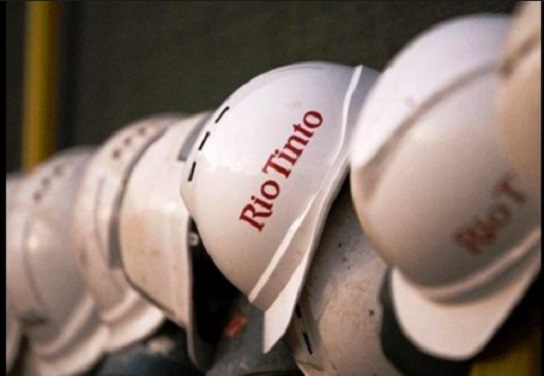Mozambique: Gas revenues rose 21.8% in 2024, slower growth this year, next
More on Rio Tinto accused of fraud over Mozambique assets – AIM

The US Securities and Exchange Commission (SEC) has charged the Anglo-Australian mining company, Rio Tinto, with fraud for grossly inflating the value of the Mozambican coal assets it acquired in 2011.
Another Australian company, Riversdale Mining, had acquired several licences for coal mining in the western Mozambican province of Tete, and opened a gigantic open-cast mine at Benga, in Moatize district.
In 2011, Rio Tinto took over Riversdale, whose only real assets were the Mozambican coal mines and licences. After lengthy negotiations, Rio Tinto paid 3.7 billion US dollars to take over Riversdale.
But in July 2014, Rio Tinto sold the Mozambican assets for a mere 50 million dollars to the Indian International Coal Ventures Limited (ICVL), which was set up by the Indian government to acquire coal mines abroad.
Prior to the sale, in 2013, the Tete assets were impaired by three billion US dollars, and in February 2014 a further 470 million dollars was written off. At this time international coal prices were falling sharply, and so Rio Tinto decided to cut its losses and sold its Mozambican interests for a bargain price. This fiasco cost the jobs of Rio Tinto chief executive officer Tom Albanese, and the man who headed the purchase of Riversdale, Doug Ritchie.
One of the founders of Riversdale, Michael O’Keefe, was astonished at this turn of events, and had no sympathy for Rio Tinto.
”We were a company with 500 million dollars in cash, rail, port, wagons, the mine was already developed, the wash plant was going, and they still managed to screw it,’’ he said.
The SEC filed a civil complaint on Tuesday in a New York court, accusing Rio Tinto of committing fraud by not accurately disclosing the true value of its Mozambique coal assets, and then failing to impair them in good time (for instance, in February 2012, when it published its 2011 accounts, or in August 2012, when it published interim accounts).
The SEC is also charging Albanese and the former Rio Tinto chief financial officer, Guy Elliott. The SEC argues that soon after the deal was completed, Rio Tinto learned that the projects would produce less coal, and of a lower quality, than expected.
“As the project began to suffer one setback after another resulting in the rapid decline of the value of the coal assets, they (Albanese and Elliott) sought to hide or delay disclosure of the nature and extent of the adverse developments” from Rio’s board, audit committee, independent auditors and investors, the SEC complaint alleges.
“Rio Tinto’s top executives allegedly breached their disclosure obligations and corporate duties by hiding from their board, auditor, and investors the crucial fact that a multi-billion dollar transaction was a failure,” SEC Enforcement Division co-director Stephanie Avakian said in a statement.
By making these misleading claims, Rio Tinto was able to raise 5.5 billion dollars from US investors, the SEC said.
Rio Tinto immediately issued a statement that it would “vigorously defend itself” against the SEC accusations, which it regarded as “unwarranted”.
But Rio Tinto’s defence will certainly suffer from the fact that it has already settled a case in Britain on the same issue. It admitted to violating accounting rules, and agreed to pay a fine of 27 million pounds (about 36 million dollars) to the Financial Conduct Authority (FCA), the British financial regulator. This is the largest fine the FCA has ever imposed on a company for such a breach.
Rio Tinto, in its protestations of innocence, says that the FCA never accused it of fraud. This is true – but had it behaved in an impeccable fashion, Rio Tinto would not have been obliged to pay an enormous fine.
Also Read: Rio Tinto and former bosses charged with fraud by US regulator over Mozambique coal













Leave a Reply
Be the First to Comment!
You must be logged in to post a comment.
You must be logged in to post a comment.